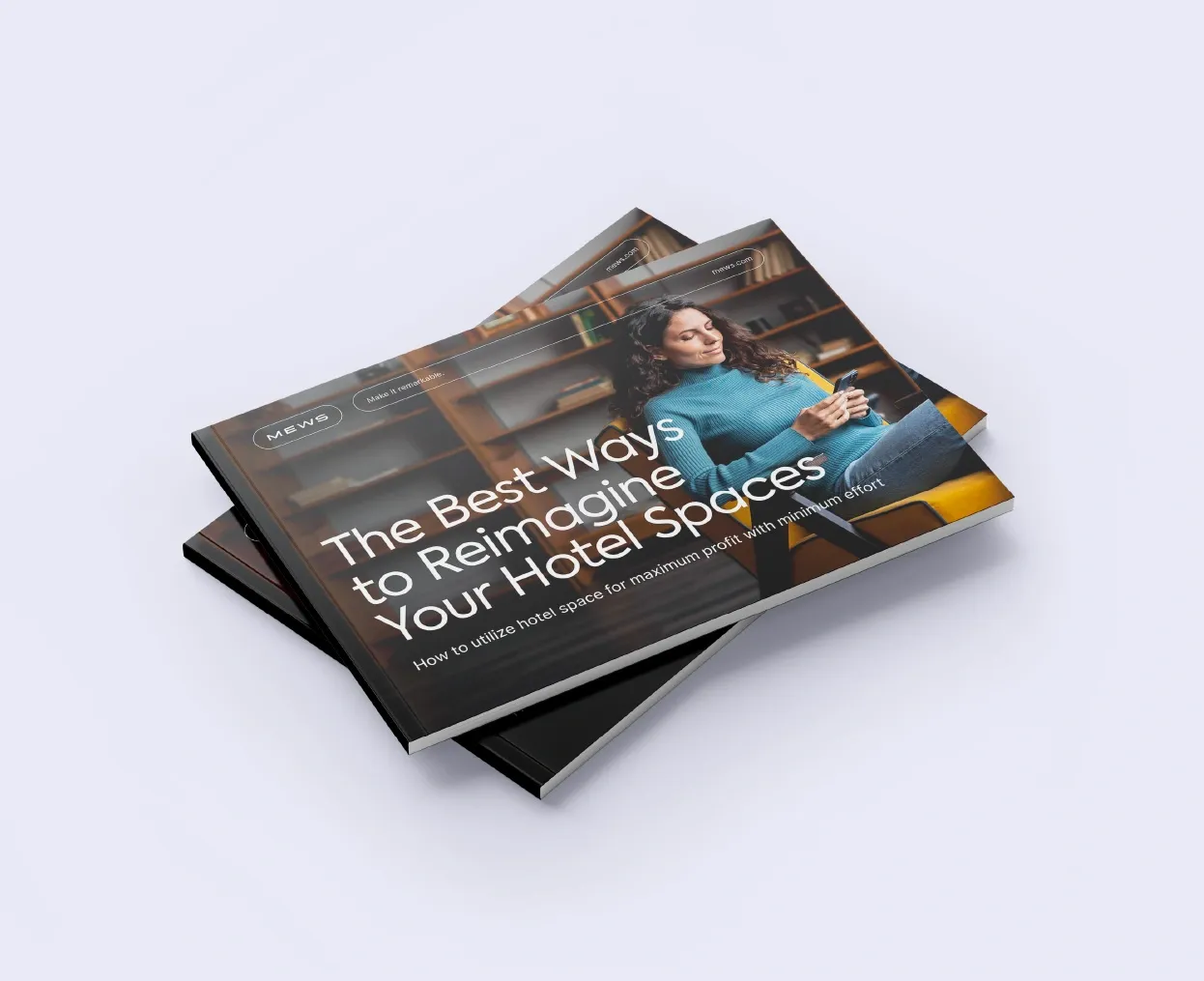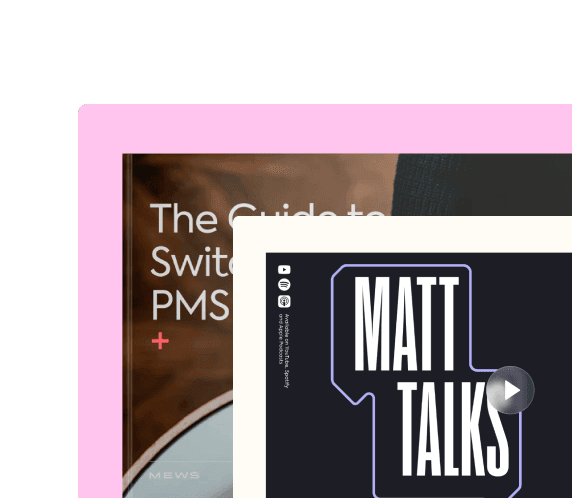Unique accommodation selling points (USPs) are the pillars of a strong hotel marketing strategy. They highlight how your hotel stands out, communicate the value you offer, and help you connect with your target audience. Without clearly defined USPs, it's harder to position your brand effectively or create lasting guest loyalty.
Your hotel USPs should be visible across all marketing channels, consistently presented in your guest communications, and backed up by the experiences you deliver. Let's explore what counts as a USP, why they matter, and how you can identify them for your hotel.
What are unique accommodation selling points (USPs)?
Unique accommodation selling points (USPs) are the features, benefits, and qualities that differentiate your hotel from the competition. They give potential guests a reason to choose your hotel instead of another, often by addressing specific guest needs or highlighting unique experiences.
A strong USP should:
- Be clear and recognizable
- Be unique to your hotel
- Align with your brand values
- Match the needs and expectations of your target guests
By focusing on these, you can create a foundation for long-term hotel guest loyalty and a stronger market position.

What isn't a hotel USP?
Some amenities are so standard in today's market that they no longer qualify as USPs. While important, they're basic guest expectations, not differentiators.
Examples include:
- Free Wi-Fi
- Flatscreen TVs
- Room service
- Daily housekeeping
- Air conditioning
- On-site parking
- Mini fridge in the room
- In-room tea and coffee
- Complimentary toiletries
- Breakfast included
- Business center
- Room service
- Gym or fitness center
These services matter, but they don't provide a compelling reason for a guest to choose your hotel.
5 reasons why unique accommodation selling points matter
1. Stand out from the crowd
The hospitality market is highly competitive. Clear USPs give potential guests a reason to notice and remember your hotel, making you more effective in your marketing campaigns.
2. Attract the right guests
Well-defined USPs help you connect with your target audience. For example, luxury guests may be drawn to wellness services and spa treatments, while business travelers may value fast check-in and dedicated workspaces.
When guests find what they're looking for, the result is positive guest reviews and testimonials, a better reputation, and happier guests.
3. Charge what you're worth
USPs create perceived value that justifies premium pricing. Working with local restaurants to create a tasting menu on your rooftop, or partnering with neighborhood businesses, transforms a stay into the ultimate guest experience– and demonstrates that your hotel goes beyond the standard.
4. Improve your marketing
USPs are powerful tools for storytelling across every channel, from social media like LinkedIn to email to paid campaigns. By anchoring your hotel marketing around unique offerings and experiences, you stand out and deliver more engaging content.
5. Create loyal customers
Memorable USPs drive customer loyalty. Personalized services and standout guest experiences create emotional connections, making it more likely that guests will return and recommend your hotel.

Types of hotel unique selling points
There's no single formula for a hotel USP. They'll look different for every property, but they generally fall into a few key categories.
Accommodation and design USPs
- Eco-friendly or sustainable design
- Sustainability certifications
- Working with local artists
- Designed by local architects
- Themed rooms
- Rooms with special views or characteristics
Food and beverage USPs
- Locally sourced ingredients
- Specialty coffee
- Foodie-focused experiences
- Tasting menus
- Farm-to-table dining
- Rooftop gardens
- Renowned chefs
- Vegetarian or vegan-friendly options
Sustainability USPs
- Waste reduction, recycling, and composting
- Green certifications
- Reusable amenities
- Partnerships with local communities or non-profits
Guest-specific USPs
- Perks for business travelers such as co-working spaces, fast check-in, or dedicated business centers
- Family-friendly services and activities
- Pet-friendly rooms and amenities
- Couples-focused packages
- Concierge services
- Cultural immersion programs
- Local experiences
Wellness USPs
- Spa treatments
- Daily yoga or meditation
- Fitness classes such as water aerobics
- Detox programs
- Sleep-enhancing touches like blackout shades, pillow menus, duvet choices, face masks, or essential oils
Location USPs
- Natural setting
- Proximity to beaches, landmarks, or attractions
- Secluded environments
- Panoramic views
Your hotel USPs are only as strong as your tech
Even the most compelling hotel USPs can fall short if operations don't run smoothly. Hoteliers need flexible and modern tech that gives staff the time and tools to deliver unique and memorable guest experiences.
Hotel management software like Mews helps hoteliers create seamless guest journeys through automated processes such as mobile check-in and check-out, self-service kiosks, and guest profiles that support personalization. With efficient reservations, revenue management, and reporting all in one platform, you can deliver unique guest experiences that match and reinforce your USPs.
How to identify your hotel USPs
Defining USPs requires a structured approach:
- Consider your current guest experience: List every amenity and service your hotel offers, then highlight what's unusual, exclusive, or locally inspired.
- Look at your competitors: Identify what sets your hotel apart by comparing your offerings to theirs.
- Gather and analyze guest feedback: Pay close attention to recurring themes in reviews, especially emotional language about experiences, feelings, or memories.
- Highlight USPs across channels: Ensure they're visible and consistent across your website, OTAs, social media, marketing materials, and direct communications.
- Train your staff: Staff are central to delivering your USPs and communicating them to guests. Proper training ensures alignment and consistency.
Conclusion
USPs are not static. As guest expectations and market trends shift, your USPs should evolve with them. They should reflect your hotel's strengths, connect with your target audience, and be supported by the right operational foundation. By consistently identifying, refining, and promoting your USPs, you can attract the right guests, strengthen loyalty, and secure your place in a competitive market.
Looking to take your property to the next level?
Download our guide "The Best Ways to Reimagine Your Hotel Spaces"

Written by

Jessica Freedman
Jessica is a trained journalist with over a decade of international experience in content and digital marketing in the tourism sector. Outside of work she enjoys pursuing her passions: food, travel, nature and yoga.









